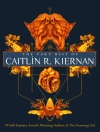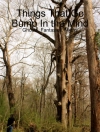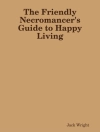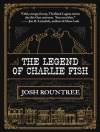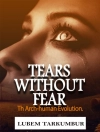In 'A Fragment of Life, ’ Arthur Machen presents a philosophical exploration of the nature of reality and perception through a gracefully woven narrative. The novella delves into the inner workings of the mind, encouraging readers to question the boundaries between the ordinary and the extraordinary. Reflecting on themes of memory, consciousness, and existentialism, Machen employs a lyrical style that is both evocative and enigmatic. Set against the backdrop of early 20th-century Britain, the work invites a contemplation of the metaphysical amid the chaos of modern life, resonating with the Symbolist movement that sought to transcend superficial reality through suggestion and imagery. Arthur Machen, a Welsh author renowned for his influential contributions to horror and bizarre fiction, drew from his own experiences and beliefs in crafting this poignant narrative. His fascination with the mystical and the arcane reflects the cultural milieu of his time, marked by a burgeoning interest in spiritualism and the unknown. Machen’s unique perspective, shaped by both his Welsh heritage and the literary currents of his era, serves as a vital underpinning for the thematic depth found in 'A Fragment of Life.’ I highly recommend this work for readers seeking to engage with a poignant reflection on the complexities of existence and the often imperceptible layers of reality. Machen’s ability to intertwine philosophical musings with rich, atmospheric storytelling makes it an essential read for those interested in the intersections of literature, philosophy, and the supernatural.
O autorze
Arthur Machen (1863-1947), born Arthur Llewellyn Jones, was a Welsh author and mystic, celebrated for his influential supernatural, fantasy, and horror fiction. His literary career bridged the late nineteenth and early twentieth centuries, with 'A Fragment of Life’ (1904) being among his significant works. In this narrative, Machen explores themes of the mundane versus the mystical, weaving a tale that critiques modern materialism while enchanting readers with a vision of a deeper, more profound reality. Machen’s style is characterized by rich, evocative prose, and a deep fascination with the arcane and the esoteric, often drawing on his Celtic heritage and an interest in the Occult. 'The Great God Pan’ (1894) and 'The Hill of Dreams’ (1907) are among his other notable works that cemented his reputation as a master of weird and supernatural fiction. Machen’s influence extended beyond genre boundaries, impacting contemporary literature and resonating with writers such as H.P. Lovecraft, who regarded him as a significant inspiration. Largely unrecognized during his lifetime, Machen’s work has gained considerable acclaim posthumously for its visionary qualities and its ability to transcend the limitations of reality through a unique, mystical literary voice.


